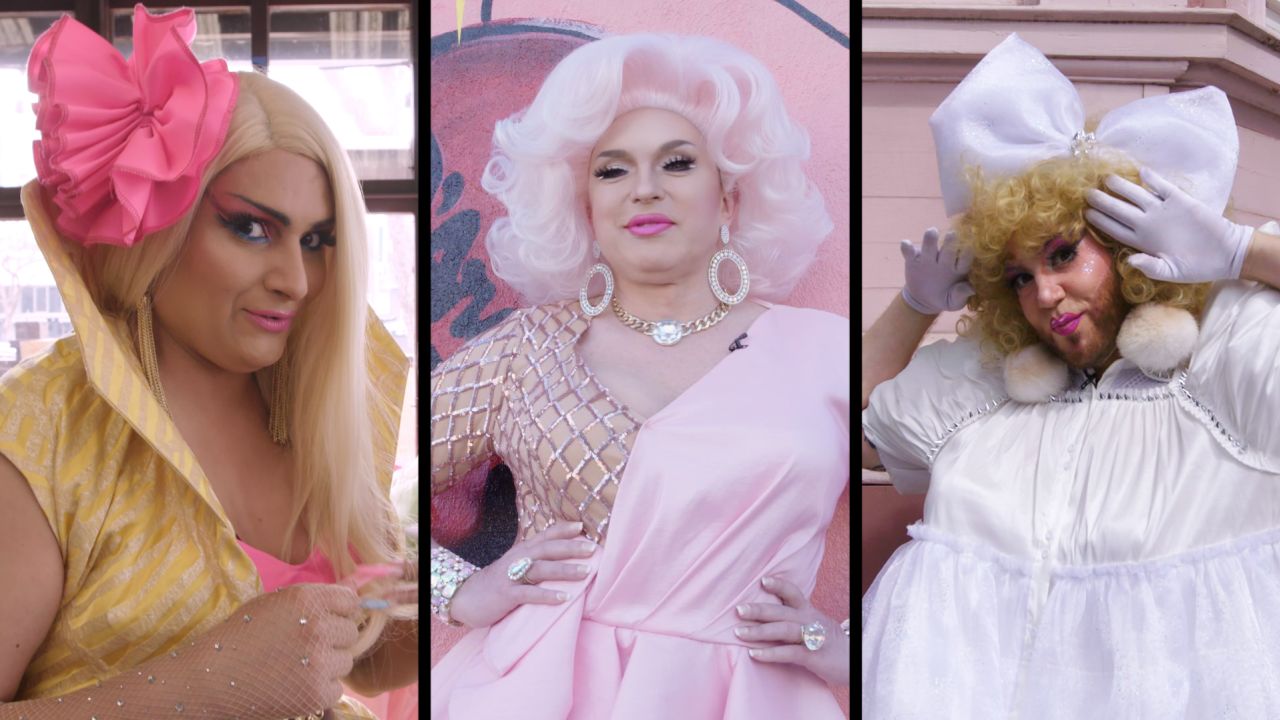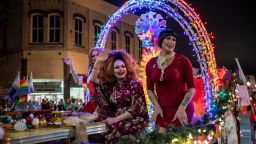D’Arcy Drollinger, a veteran of San Francisco’s vibrant drag scene, has been named the city’s first-ever Drag Laureate and will become an ambassador for San Francisco’s drag and LGBTQ+ community for an 18-month term, Mayor London Breed’s office announced Thursday.
The position is the first of its kind in the country.
“While drag culture is under attack in other parts of the country, in San Francisco we embrace and elevate the amazing drag performers who through their art and advocacy have contributed to our City’s history around civil rights and equality,” Breed said in a news release.
Drollinger says she’s “proud to live in a city that is pioneering this position while other parts of the US and the world might not be supportive of Drag. This role will build bridges and create partnerships, while elevating and celebrating the Art of Drag.”
Drag, according to Drollinger, is a way for many people who “aren’t allowed to sparkle in their real lives and as their true selves” to find refuge, she told CNN.
San Francisco has a rich history of drag
Breed officially announced the creation of the Drag Laureate program in her June 2022 city budget, but the concept was first introduced in August 2020 in a report from San Francisco’s LGBTQ+ Cultural Heritage Task Force, a city-supported task force which reviewed community feedback on LGBTQ+ needs and concerns.
Among other strategies, the task force recommended improving partnerships between city agencies and community organizations to expand creative programs for LGBTQ+ artists, including the “creation and funding of LGBTQ+ artist residency opportunities.”
Finding spaces for queer creatives is an issue Drollinger understands intimately, as she opened the popular Oasis cabaret and nightclub in 2015 to provide a mid-size venue space for both local and touring drag performers. The survival and success of Oasis, through the pandemic, was vital for San Francisco’s drag community.
“It’s important to have a space that’s for everyone, and Oasis has become a bit of a hub,” Drollinger said.
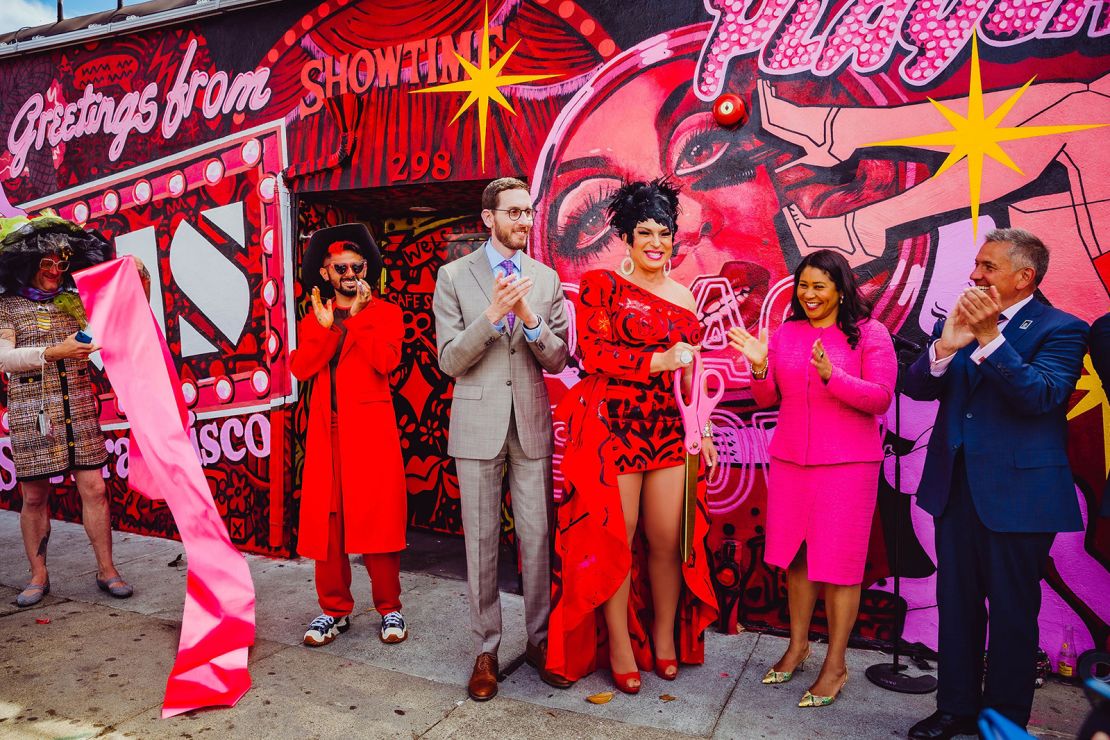
Drag has a rich history in San Francisco, both as an appreciated art form and protest medium. Dating back to the 1950s, nightclubs such as the Black Cat and Finocchio’s drew both queer and straight audiences. The Compton Cafeteria riots in the city’s Tenderloin district became one of the first notable acts of queer protest in 1966 – three years before New York City’s famed Stonewall riots.
Drollinger, a San Francisco native, has always been drawn to the city’s vibrant creative queer scene.
“There’s something in the water. What I find exciting about San Francisco, it still remains that there is a willingness to experiment here that I haven’t found in many other places. People are willing to workshop things and play around with stuff purely for the joy of making art,” Drollinger said.
She commends the city for spearheading efforts to promote drag, especially at a time when drag performance is under attack. By making the Drag Laureate an official city position, provided with a $55,000 stipend, Drollinger says San Francisco sends a message of the “legitimacy” of drag.
“(San Francisco) is not asking for a volunteer. They’re asking us to be a diplomat and show up and be a part of the city.”
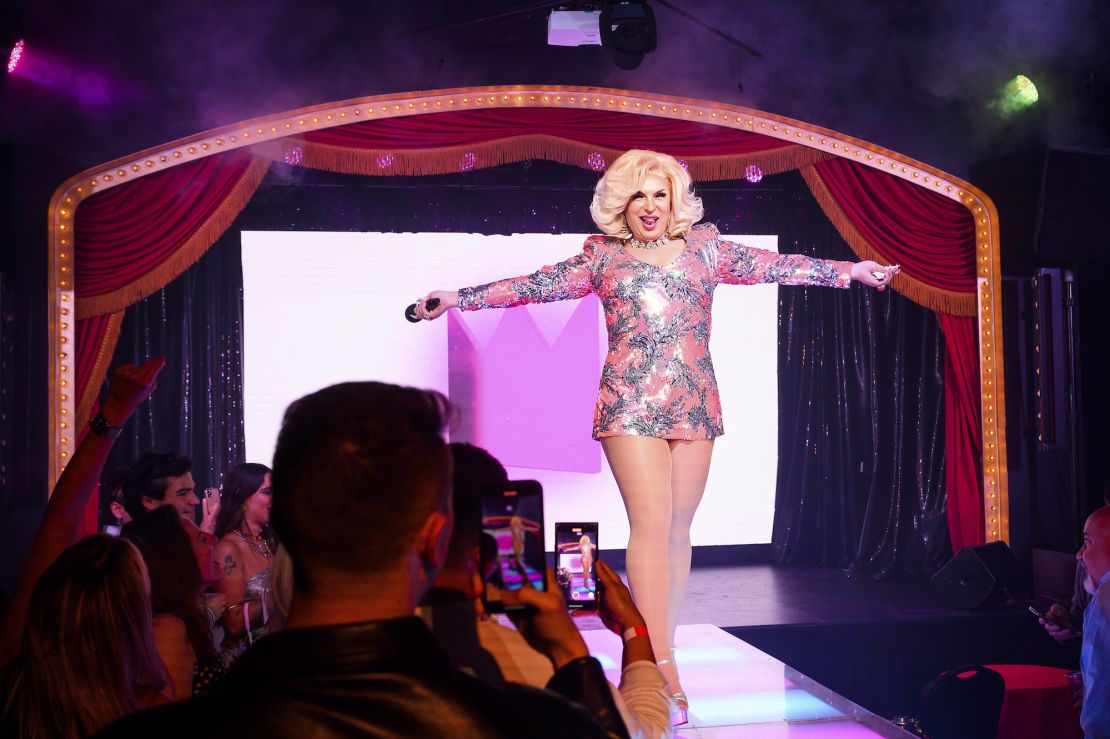
The importance of drag to the applicants
Before Per Sia, one of the Drag Laureate applicants, began dressing in drag, they fell in love with the art form as a photographer, capturing images of drag queens in South Central Los Angeles and San Francisco. They loved the extravagance and celebrity-like personas drag queens embodied but felt too shy and nervous to do drag themselves.
The first time Per Sia dressed in drag was 16 years ago on a dare, to perform in San Francisco’s Castro District. The experience was revelatory and they haven’t looked back.
“After I [performed], there was this sense of joy, this empowerment that I have never felt before, and I just fell in love with it,” Per Sia said.
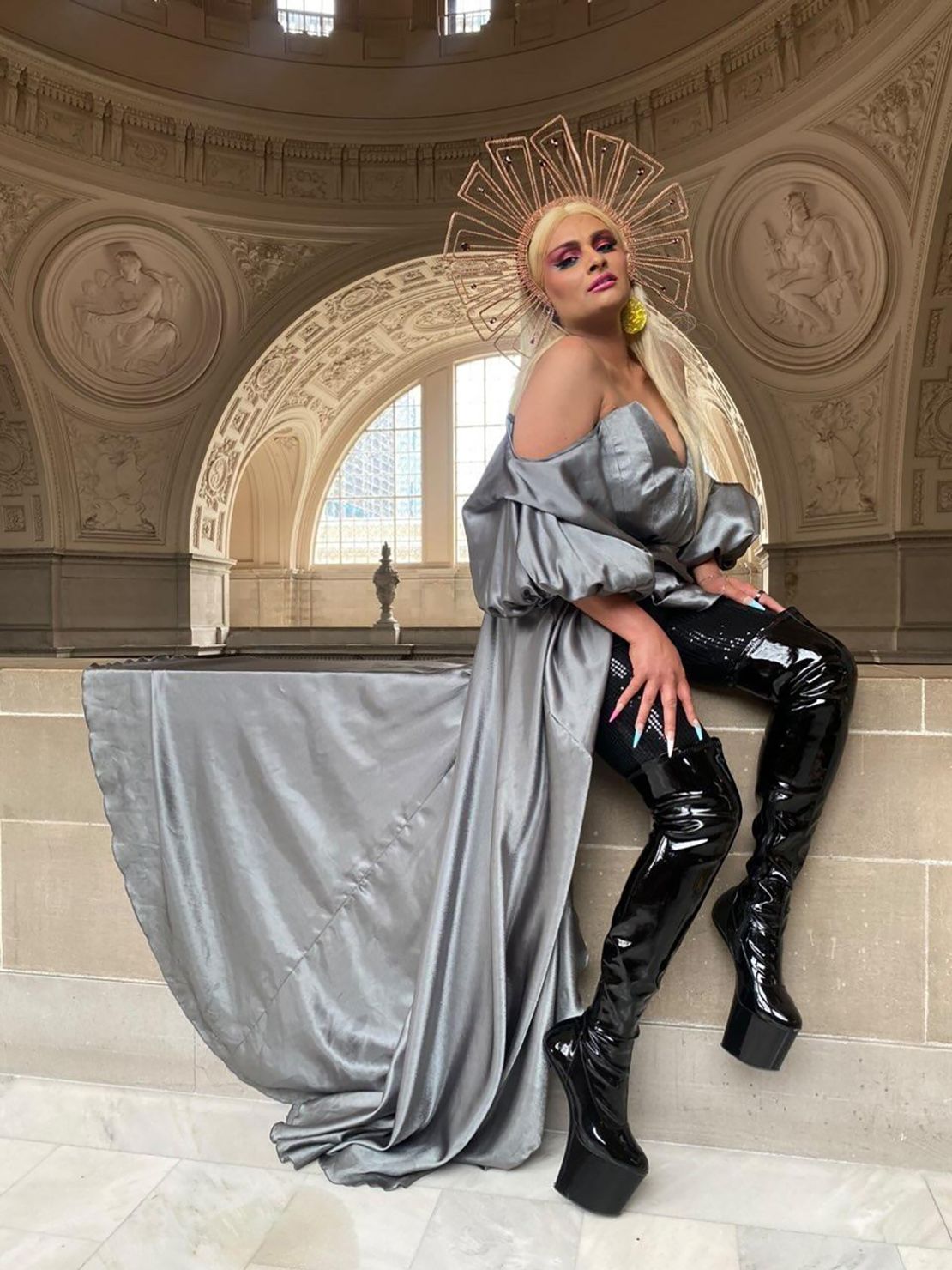
They balance drag performance with their second career as an arts educator. Per Sia, who jokes that they get to “teach the little kids” during the day and “perform in front of the big kids” at night, sees drag as a tool to educate people, on top of entertaining them.
They combine these two careers as a regular for Drag Story Hour, a program where drag queens read stories to children to promote self-expression. They’ve read for San Francisco Public Library events and Oakland Pride, and Per Sia enjoys teaching children about “thinking outside of the box” through these story hours.
“When you’re a little kid, it’s all about using your imagination, glittering everything and using all the colors, but at some point all of that gets taken away,” Per Sia said. “The benefit of drag is that you teach kids that there’s other ways of living.”
Drag has always been a part of Drollinger’s life, but it was a slow process for her to embrace drag as her “work clothes” until she was in her 40s. She credits drag for helping her find her community and identity.
“So many people that find drag, they find it when they aren’t allowed to sparkle in their real life, and their fabulousness is squashed,” Drollinger said. “Drag is a way to let so much of that out.”
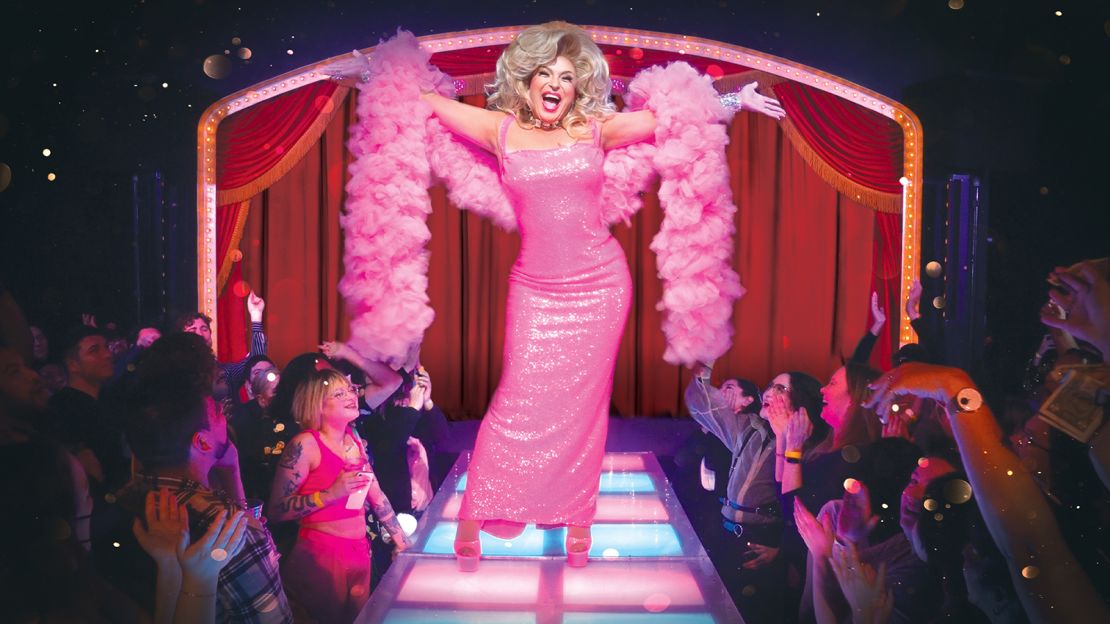
While San Francisco elevates drag, conservative lawmakers around the country are cracking down on it
The appointment of the Drag Laureate comes at a time when public drag performances and transgender expression are being threatened by conservative lawmakers across the country.
“San Francisco’s commitment to inclusivity and the arts are the foundation for who we are as a city,” Breed wrote in a November statement. “Drag artists have helped pave the way for LGBTQ+ rights and representation across our city, and they are a part of what makes our city so special.” [[pending updated comment from mayor’s office TK]]
Legislation banning or restricting drag has been gaining momentum in many Republican-led states. GOP lawmakers have claimed that drag performances expose children to sexual themes and imagery that are inappropriate, though many drag performances take place in age-restricted locations or require parental consent to attend.
In March 2023, Tennessee became the first state to pass a law banning drag performances on public property and in locations where children can view the performances.
Drollinger feels the effects of the national pushback against her work, even in a city known for progressive values. She’s spent more money on security at Oasis to ensure the audience and performers feel safe, she told CNN.
“Creating these kinds of laws, demonizing trans people and the LGBTQ+ community, what they’re doing is inciting violence,” Drollinger said. “It’s terrifying. They want to erase my community and erase us.”
Both Per Sia and Drollinger hope that by pioneering the Drag Laureate position, San Francisco will establish a model of tolerance for others to follow.
“Important things happen here in San Francisco, and the world takes notice. Having this position for someone like me or anyone who applied is so special, but also, it’s showing the world that drag is powerful, and it deserves a place,” Per Sia said.
